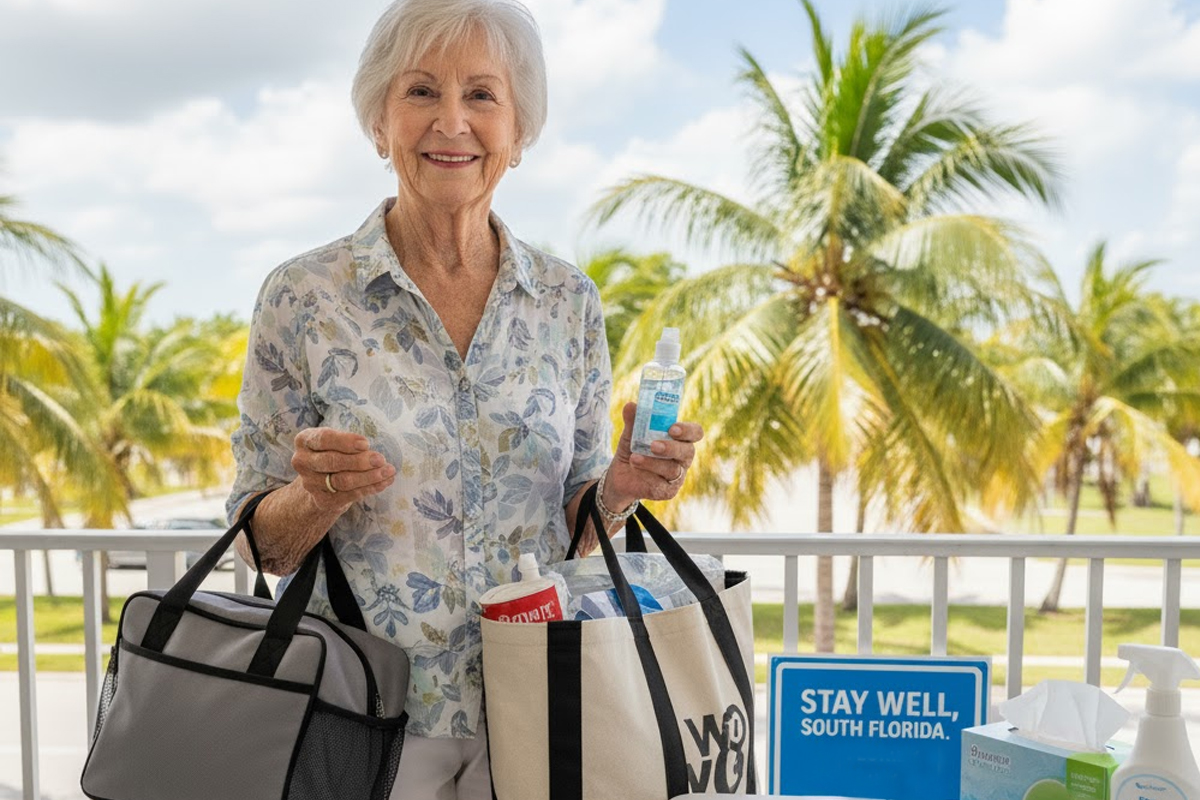Prepare for Flu Season, Even in South Florida
Flu Season Tips for Seniors | Prevent Flu Elderly | Senior Health Flu Season
Even though South Florida is known for its warm weather and sunshine, flu season still poses a serious risk—especially for seniors. Many people think the flu is only a problem in colder states, but viruses can spread year-round in humid climates. For older adults, the flu can lead to serious complications such as pneumonia or hospitalization. The good news? With the right preparation, seniors can stay healthy and protected all season long.
Understanding Flu Season in South Florida
Unlike northern states where flu cases spike during winter, South Florida experiences flu activity throughout the year, with peaks often occurring from October to May. Because of the region’s warm climate and tourist activity, viruses circulate more freely. Seniors—whose immune systems naturally weaken with age—are at a higher risk of developing severe flu symptoms.
That’s why it’s essential to take preventive measures early and maintain them consistently, even when the weather feels mild.
Why Seniors Are at Higher Risk
As we age, the immune system’s ability to fight infections declines. Chronic conditions such as diabetes, heart disease, or lung problems can make it harder for the body to recover from the flu. For seniors, even a “mild” case can quickly turn serious.
Complications can include:
-
Pneumonia
-
Worsening of chronic illnesses
-
Dehydration and fatigue
-
Hospitalization and prolonged recovery
That’s why it’s crucial for older adults—and those who care for them—to take every precaution to prevent the flu and support overall senior health during flu season.
Get Vaccinated Early
The flu vaccine remains the most effective way to prevent infection. Seniors should receive their flu shot as soon as it becomes available, typically in early fall. It takes about two weeks after vaccination for protection to build, so early preparation is key.
There are also high-dose and adjuvanted flu vaccines specifically designed for people aged 65 and older. These options help boost the immune response and provide stronger protection. Always consult with a doctor or pharmacist to determine which vaccine is right for you.
Practice Good Hygiene
Simple hygiene habits can make a big difference in preventing the spread of the flu:
-
Wash your hands regularly with soap and warm water for at least 20 seconds.
-
Avoid touching your face, especially your eyes, nose, and mouth.
-
Disinfect frequently touched surfaces like doorknobs, remotes, and countertops.
-
Cover coughs and sneezes with a tissue or your elbow.
-
Encourage visitors who feel unwell to stay home.
These everyday precautions may seem small but are powerful tools to protect seniors from illness.
Support a Strong Immune System
Preventing the flu in the elderly starts with maintaining good overall health. A strong immune system helps the body fight off viruses more effectively. Here are some simple tips to help seniors stay resilient during flu season:
-
Eat a nutrient-rich diet: Include plenty of fruits, vegetables, whole grains, and lean protein. Foods rich in vitamins C, D, and zinc can help strengthen immunity.
-
Stay hydrated: Even mild dehydration can make seniors more vulnerable to illness. Encourage water, herbal teas, and soups.
-
Get regular sleep: Aim for 7–8 hours of rest per night. Quality sleep supports immune health and recovery.
-
Exercise safely: Gentle activity like walking, stretching, or yoga improves circulation and boosts the body’s defenses.
-
Manage stress: Chronic stress weakens the immune system. Activities like reading, meditation, or light gardening can help seniors stay calm and positive.
Prepare the Home Environment
A clean and well-prepared home can reduce exposure to germs. Caregivers can help by creating a healthier environment for seniors:
-
Keep air filters clean and consider using an air purifier.
-
Encourage fresh air by opening windows when weather allows.
-
Stock up on essentials like hand sanitizer, tissues, and cleaning supplies.
-
Ensure easy access to medications and contact information for healthcare providers.
For those who receive home care, professional caregivers can also help maintain a sanitary space, monitor symptoms, and provide daily support to promote wellness.
Recognize Symptoms Early
Flu symptoms can appear suddenly and may include:
-
Fever or chills
-
Cough and sore throat
-
Muscle aches
-
Fatigue
-
Headache
If a senior shows any of these symptoms, contact a healthcare provider right away. Early treatment—especially with antiviral medication—can reduce the severity and duration of illness.
The Role of Home Care During Flu Season
Home care plays an essential role in preventing and managing flu season risks for older adults. Caregivers can assist with:
-
Flu prevention routines like handwashing and sanitizing high-touch areas
-
Meal preparation to support immune health
-
Medication reminders for flu vaccines or prescribed antivirals
-
Monitoring for symptoms to ensure quick response if illness develops
-
Reducing exposure by limiting unnecessary outings and encouraging healthy habits at home
At Caring Home Care, our trained caregivers understand the unique health challenges seniors face during flu season. We focus on maintaining safety, comfort, and independence while promoting healthy living every day of the year.
Stay Ahead of Flu Season
Even in sunny South Florida, flu season can affect anyone—especially seniors. Preparation, prevention, and proactive care make all the difference. By getting vaccinated, maintaining good hygiene, supporting a strong immune system, and having professional help when needed, seniors can stay safe, healthy, and worry-free all season long.




Leave A Comment